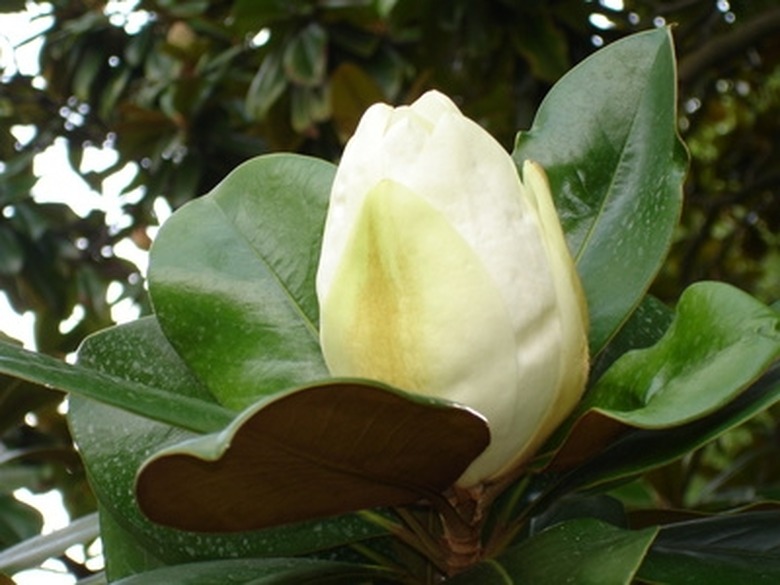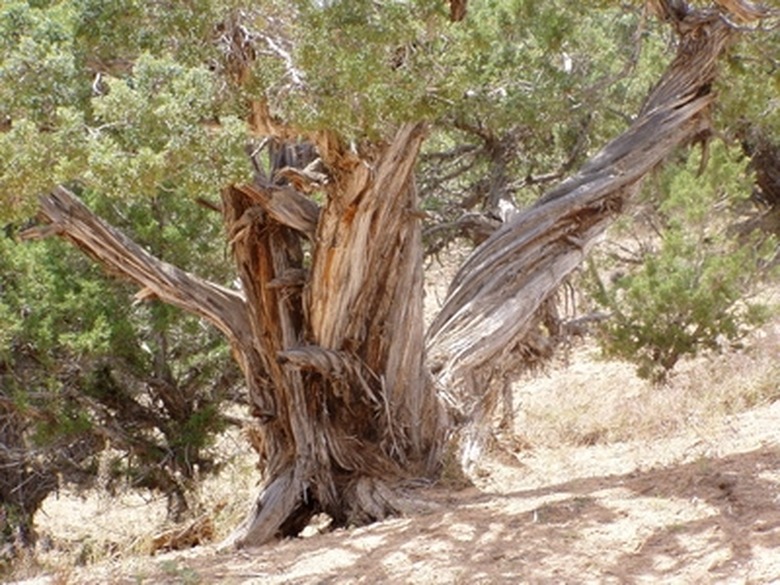Acid Or Alkaline Soil For Evergreen Trees?
Step 1
The huge diversity of evergreen trees includes types that have needles, scales or broad leaves. Although the foliage is regarded as evergreen, the needles and leaves do eventually die and drop to the ground. There they decompose and release nutrients and compounds back into the soil, usually lowering soil pH to turn a bit more acidic. Some evergreen trees only grow well in an acidic soil, such as hollies, spruces and magnolias. while other species are quite tolerant of a wider range of soil pH, including cedars, pines, firs and larches. A few evergreens even excel in alkaline soil, such as Ponderosa and jack pines, European olive, cedar of Lebanon and junipers.
Neutral Soil
Step 1
Near-neutral pH soil, around 6.5 to 7.5, is appropriate for the broadest variety of evergreen trees. As long as the soil is fertile, or at least contains enough nutrients and moisture to meet the needs of the evergreen tree species, a neutral soil suffices. Adding soil amendments such as compost, lime or man-made fertilizers containing aluminum or potash, can slightly and temporarily modify soil pH to create a soil more conducive for growth. It's much easier to slightly modify a neutral soil to become slightly more acidic or alkaline than it is to change pH from acidic to alkaline.
Step 2
- The huge diversity of evergreen trees includes types that have needles, scales or broad leaves.
- There they decompose and release nutrients and compounds back into the soil, usually lowering soil pH to turn a bit more acidic.
Soil Preference Insight
Step 1
There are species of evergreens that originated all over the globe, learning the native habitat of the tree provides insight as to which soil pH is best. For example, regions with clay soil, lots of parent granite stone, pine or oak forests or peat bogs and lots of rainfall tend to develop acidic soils, such as in the eastern United States. Sandy and loam soils, those near an ocean, derived from parent limestone or decaying grassland compost and are are relatively dry tend to be neutral to alkaline. These dominate in the central and western U.S. Try to match a tree's native soil conditions to the soil extant in your garden.
Further Help
Step 1
It's not a good idea to blindly plant evergreen trees with no regard to your soil conditions and qualities. Conduct a soil test to learn your soil's pH. You can purchase basic test kits at a garden center or send soil samples to a university extension laboratory for analysis. Contact your local cooperative extension office or botanical garden to speak with an agent or horticulturist about evergreen trees. Once the identity of the tree species is known, you can learn of the tree's soil pH tolerances and inform your planting decisions. The plant kingdom is diverse and man-made rules and guidelines always find an exception.
Step 2
- There are species of evergreens that originated all over the globe, learning the native habitat of the tree provides insight as to which soil pH is best.
References
- San Diego Earth Times; Acid Loving Plants, Something for Everyone; Don Trotter; 1999
- Purdue University; Landscape Plants for Acid Soils; Michael N. Dana and B. Rosie Lerner
- Glover Nursery: Alkaline Soil Trees
- University of Minnesota Extension; Tough Trees and Shrubs for Tough Sites; Gary R. Johnson, et al.; 2001


